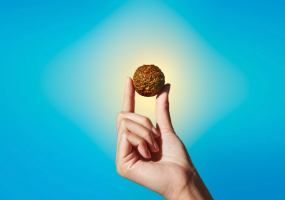Production surplus from coffee growers as Brazil, Honduras and Columbia due to good farming and harvest conditions may see coffee prices dropping for a bit of a spell. Bloomberg reports that average retail price has, in fact, broken the low of February 2011 at $4.412 a pound in November. As a result consumption of this morning essential - which fresh-made smell has been called by the likes of actor Hugh Jackman as "one of the greatest inventions" - is projected to increase massively.
According to the US Department of Agriculture, Arabica coffee production for this year may go up by 600,000 bags more than produced in the previous year. This adds to the previous year's 150.1 million. Coffee importation by the United States is also estimated by the agency to increase by 500,000 more bags for a total of 24.0 million bags this 2016 to keep up with rising demand.
Because these price changes owe much to weather conditions, experts point to the vulnerability of coffee agriculture to environmental elements and, more worryingly, to climate change. Just as easily as market prices are dropping now, coffee rates and prices can shoot up if production is disrupted.
In other parts of the world, however, premium variety coffee beans are facing a crisis of shortage. Managing director of the Allegra Group, Jeffrey Young, sums up recent food and beverage market analysis with this warning that the supply of high quality coffee drinks to this market may be unsustainable.
"This thirst for high quality coffee means that production is not keeping up with demand at a global scale so stocks have been declining."
"Britain is becoming a nation of coffee connoisseurs - like wine, people want to learn about how it's made and how to taste it.
"But unlike with wine farmers or other high value commodities, we've effectively got people living in poor regions in the tropics and they take what they can get.
"Coffee prices, in real terms, haven't gone up in years so it is becoming less worthy of farmers' time to grow coffee."
The head of Italian roaster Illy says that global production must increase by 40 million to 50 million bags within the next 10 years to stay abreast with demand and consumption.
In the 2015-2016 production year, the projected production deficit is at 3.5 million bags.









